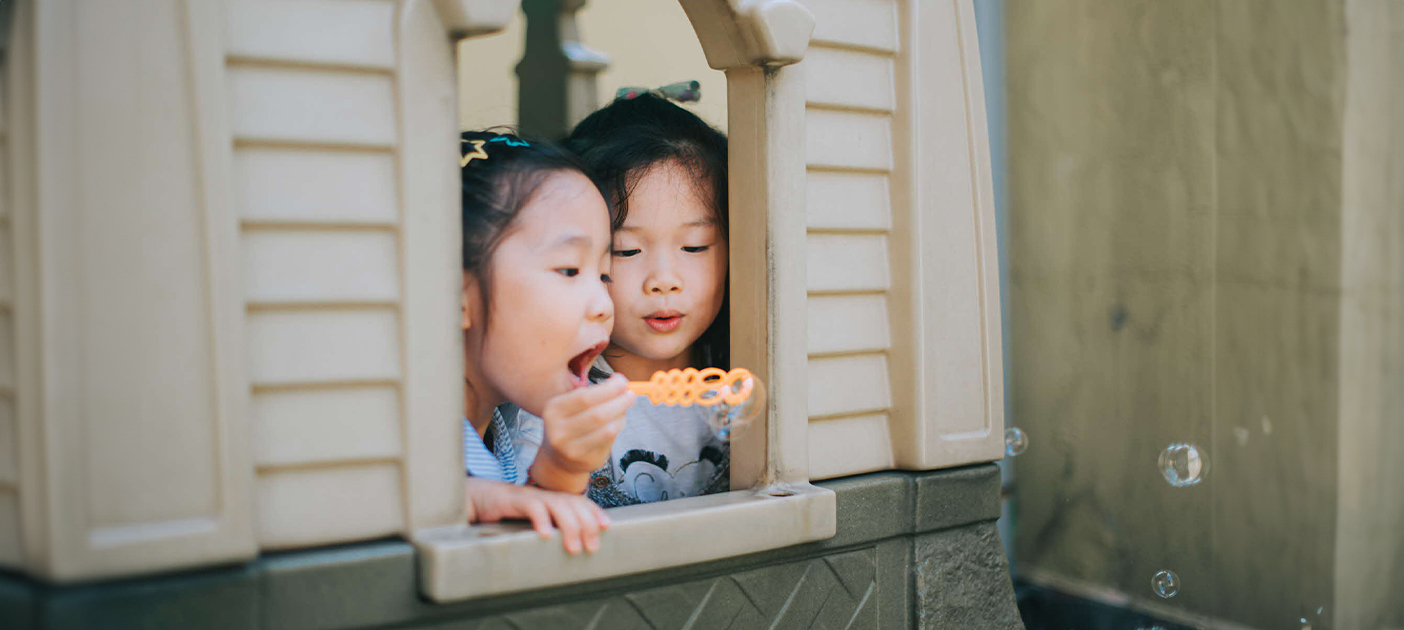Cost of hiring a domestic helper in Singapore
![]()
If you’ve only got a minute:
- The most significant cost to expect is your helper’s monthly salary.
- Other ongoing expenses such as medical examinations, insurance coverage, living expenses, and migrant domestic worker levy should also be taken into consideration.
- There are government grants and subsidies available to help offset some of the costs.
![]()
To alleviate the load of daily chores and caregiving responsibilities, many households turn to foreign domestic helpers (DH). This is especially so for young parents who may not have other help and need to juggle both work and parenting duties.
As of December 2023, Singapore has a total of 286,300 migrant domestic workers (MDW), according to Singapore's Ministry of Manpower (MOM)[i]. The percentage of households hiring domestic helpers in Singapore is the highest compared to (Japan, Korea and Malaysia) at 15.4%, followed by Malaysia at 12.0%.[iii]
While the decision to hire a DH brings a host of benefits, it also comes with financial implications. There are more costs and responsibilities to consider beyond just the monthly salary.
Here are some key costs and considerations to keep in mind.
|
One-time fees |
Average cost |
|---|---|
| Agency fee | S$1,000 to S$3,000 |
| Security bond* | S$5,000 |
| Placement fee (upfront) | S$2,750 |
| Work permit | S$70 |
| Settling-in programme | S$75 |
| Employer’s orientation programme | S$35 to S$60 |
| Placement fee (upfront) | S$2,750 |
| Total (with security bond): Total (without security bond): |
S$8,930 to S$10,955 S$3,930 to S$5,955 |
*You can avoid forking out the S$5,000 security bond if you buy an insurance policy for your DH. For more information, please refer to Recurring costs: Medical insurance, below.
Source: MOM
Recruitment agency fee
A migrant domestic worker (also known as domestic helper) can be recruited through the help of a maid agency or hired independently without an agency (maid transfer).
If you are hiring a DH for the first time, using an agency might be a good idea since they’re able to assign the right help according to your needs. They will also assist with paperwork and ensure that all legal requirements, such as work permits and contracts, are met.
You can expect to pay between S$1,000 and S$3,000 of agency fees.
Alternatively, you can consider a transfer helper to save some money.
Transfer helpers tend to be less expensive because they involve hiring one who is already working in the country and seeking a new employer.
In short, using an agency streamlines the hiring process, saving you time and effort in hiring a maid, but at a cost.

Security bond
You must get a S$5,000 security bond (paid to MOM) for your DH (except for Malaysian helpers). It can be in the form of a banker’s or insurer’s guarantee.
This bond is a binding pledge to pay the government if either you or your helper breaks the law or work permit conditions.
For example, if you fail to fulfil your responsibilities such as providing proper accommodation, fair treatment and adhering to employment regulations, the bond may be forfeited and be used to compensate the maid for any damages or losses incurred.
You will get this bond back at the end of your maid’s employment - after you cancel the work permit, did not breach any of the security bond conditions and your maid has returned home successfully.
You can avoid forking out the S$5,000 security bond if you get medical insurance (MI) for your DH. (For more information, please refer to Recurring costs: Medical insurance, below.)
Placement fee (maid loan)
Most maid agencies have a component call placement fee - often calculated as the DH’s salary multiplied by a specified number of months - that the employer (you) has to cover first. Think of it as the fee your DH pays to the agency to work here, which she then repays (to you) over time.
To illustrate, if your DH earns S$550 per month and the placement fee is for 5 months, the total maid loan amount would be S$2,750 (S$550 x 5 months).
Placement fees are not considered as part of your expenses since you’ll receive the payment through deductions made from your DH’s salary in the initial months of employment .
Work permit
Work permit costs include both application and issuance, which cost S$35 each (S$70 in total). They are usually valid for 2 years. You will have to renew your DH’s work permit if it has expired.
Settling-in Programme (SIP)
The SIP is a mandatory 1-day orientation programme for all new/first-time MDWs at a fee of S$75 borne by you.
The topics covered include:
- Adapting to working and living in Singapore
- Conditions of employment
- Working safely
- Relationship and stress management
This is to help your new MDW adapt to living and working in Singapore, as well as to educate her on her rights, responsibilities, and home safety measures.
Employer’s Orientation Programme (EOP)
In addition, you must attend the EOP to better understand your role and responsibilities as an employer of a MDW (if you are hiring a MDW for the first time or have changed workers frequently).[iii]
Classroom sessions cost S$35 to S$60 - 3-hour course duration - while online sessions - 1.5-hour course duration - cost S$35.
This programme aims to help you better understand the dos and don’ts so that you can manage your MDW while ensuring compliance to reduce the risk of legal issues and potential penalties.
Recurring fees
|
Recurring fees |
Average cost |
|---|---|
| Salary | S$480 to S$700 x 12 = S$5,760 to S$8,400 |
| Medical examinations (twice a year) | S$70 |
| Insurance (basic) | S$425.20 (covers S$5,000 security bond to MOM) |
| Living expenses | S$300 x 12 = S$3,600 |
| Levy (with concession) | S$60 x 12 = S$720 |
|
Recurring fees |
Average cost |
|---|---|
| Total (annual): | S$10,575.20 to S$13,215.20 |
Salary
The most significant cost to expect is your maid’s monthly salary and it can vary based on factors such as nationality, skills, experience, capabilities and competencies.
As of December 2023, the monthly salary for a DH typically ranges from S$480 to S$700 (or more). This is an estimation of the least amount of money that can be expected each month when employing maids based on their nationality[iv]:
|
Nationality |
Monthly wage |
|---|---|
| Myanmar | S$480 |
| Sri Lanka | S$500 |
| Indonesia | S$550 |
| Philippines | S$600 (higher due to their competency in English) |
You should expect to pay more than the minimum, particularly if your MDW has prior experience.
In addition to the base monthly salary, you might want to include overtime pay for work beyond the standard hours, bonuses for good performance and/or annual salary increment for prolonged employment.
A competitive pay structure can help motivate your MDW and retain her for a longer term, should the need arise.

6 monthly medical examinations (6MEs)
It is mandatory to send your maid for 6MEs to screen for pregnancy and infectious diseases such as syphilis (VDRL), HIV and tuberculosis (TB).
A basic 6ME costs around S$35 (VDRL and pregnancy) so you will have to set aside at least S$70 per year (2 visits).
Should your maid decide to renew her contract (after 2 years), she will have to undergo additional tests (HIV and TB - S$80) and this will cost you around S$115 (S$80 + S$35).
On top of the mandatory MEs, you are also responsible for covering occasional medical expenses such as common colds, flu, or dental issues.
Medical insurance
Besides medical expenses, you must provide your maid with personal accident and medical insurance coverage with an annual claim limit of at least S$60,000.
A basic plan from DBS (Maid Protect II) will cost you S$425.20 yearly.
You can choose to add on benefits such as Waiver of Counter Indemnity (from S$34.53) and Employer’s Liability (from S$17.45) depending on your needs, at additional costs .
The policy will cover the issuance of the S$5,000 security bond to MOM on your behalf. In other words, this frees you from the need to pay the S$5,000 cash up front to MOM.
You will only have to pay S$425.20 for the insurance policy every year.
Living expenses
Living under the same roof, your MDW is like an additional “family” member. You are responsible for covering her living expenses which include food and utilities (S$200 to S$300) and other miscellaneous costs such as transportation expense (S$100) - for tasks like grocery shopping.
Government grants and subsidies
There are several grants and subsidies available that can help reduce some costs.
1. Maid levy concessionThe levy rate[v] for MDWs is as follows:
|
Type of levy |
Monthly rate |
Daily rate |
|---|---|---|
| Normal (1st maid) | S$300 | S$9.87 |
| Normal (Subsequent maids) | S$450 | S$14.80 |
| **Concessionary | **S$60 | **S$1.98 |
If you are eligible, you only have to pay concessionary rate of S$60 (savings of at least S$240 per month!).
To qualify for the levy concession, you must live with any of the following eligible person (Singapore citizen - SC):
- Child below age 16
- Elderly person who is at least 67 years old
- Person with disabilities (minimally 1 activity of daily living (ADL))
Do note that each household is eligible for up to 2 MDW levy concessions, caring for 2 loved ones at any one time.

The HCG provides a monthly cash payout of up to S$400 to help you with multiple caregiving expenses (beyond maid hire) such as senior and caregiver support services in the community to transportation for medical appointments for loved ones with disabilities (3 or more ADLs).
|
Per capital household monthly income |
HCG Monthly payout |
|---|---|
| S$0 - S$1,200 (or Annual value of residence ≤ S$21,000 for households without income) |
S$400 |
| S$1,201 - S$2,800 | S$250 |
To be eligible, you must meet the following criteria:
- You must be a Singapore Citizen (SC) or Permanent Resident (PR) living in Singapore with a parent, child or spouse who is a SC
- Household monthly income that is S$2,800 or less, or belong to a household with no income and living in a residence with an annual value that is S$13,000 or less (If you have multiple properties, you will receive the lower HCG payout – S$250)
- Elderly person or person with a disability must require assistance with at least 3 ADLs
- Care recipient is not living in a nursing home

Alternatives
If the cost of hiring a MDW is beyond your budget, there are other options you can consider.
For example, for household chores, you can consider hiring a part-time maid or engage a cleaning company. Both options offer one-time or periodic cleaning services (hourly rate) that can be more cost-effective than hiring a maid full-time.
If you require assistance for young children, consider sending them to a daycare or hiring a part-time nanny. Likewise for elderly and loved ones with disabilities, a part-time caregiver might help cut some costs too.
All in all
While hiring a MDW is costly, the benefits they bring often outweigh the expense. For example, you get more free time for family and leisure activities, reduced stress from household chores, and improved caregiving support for children or elderly family members.
Ultimately, the decision to hire a DH involves weighing the costs against the benefits and prioritising what matters most in achieving a balanced and fulfilling lifestyle.
That said, it is crucial to assess your finances and determine your affordability before engaging one.
Ready to start?
Check out digibank to analyse your real-time financial health. The best part is, it’s fuss-free – we automatically work out your money flows and provide money tips.
Speak to the Wealth Planning Manager today for a financial health check and how you can better plan your finances.
iMinistry of Manpower, “Foreign workforce numbers”. Retrieved 12 Apr 2024.
iiGlobal Market Surfer, “% of household who employ house keeper(s)/maid(s)_4 countries”. Retrieved 12 Apr 2024.
iiiMinistry of Manpower, “Employers' Orientation Programme (EOP)”. Retrieved 12 Apr 2024.
ivFirst Maid, “2023 Cost Of Hiring A Maid / Domestic Helper In Singapore”. Retrieved 12 Apr 2024
vMinistry of Manpower, “Levy concession for a migrant domestic worker (MDW)”. Retrieved 12 Apr 2024.
Disclaimers and Important Notice
This article is meant for information only and should not be relied upon as financial advice. Before making any decision to buy, sell or hold any investment or insurance product, you should seek advice from a financial adviser regarding its suitability.








That's great to hear. Anything you'd like to add? (Optional)
We’re sorry to hear that. How can we do better? (Optional)